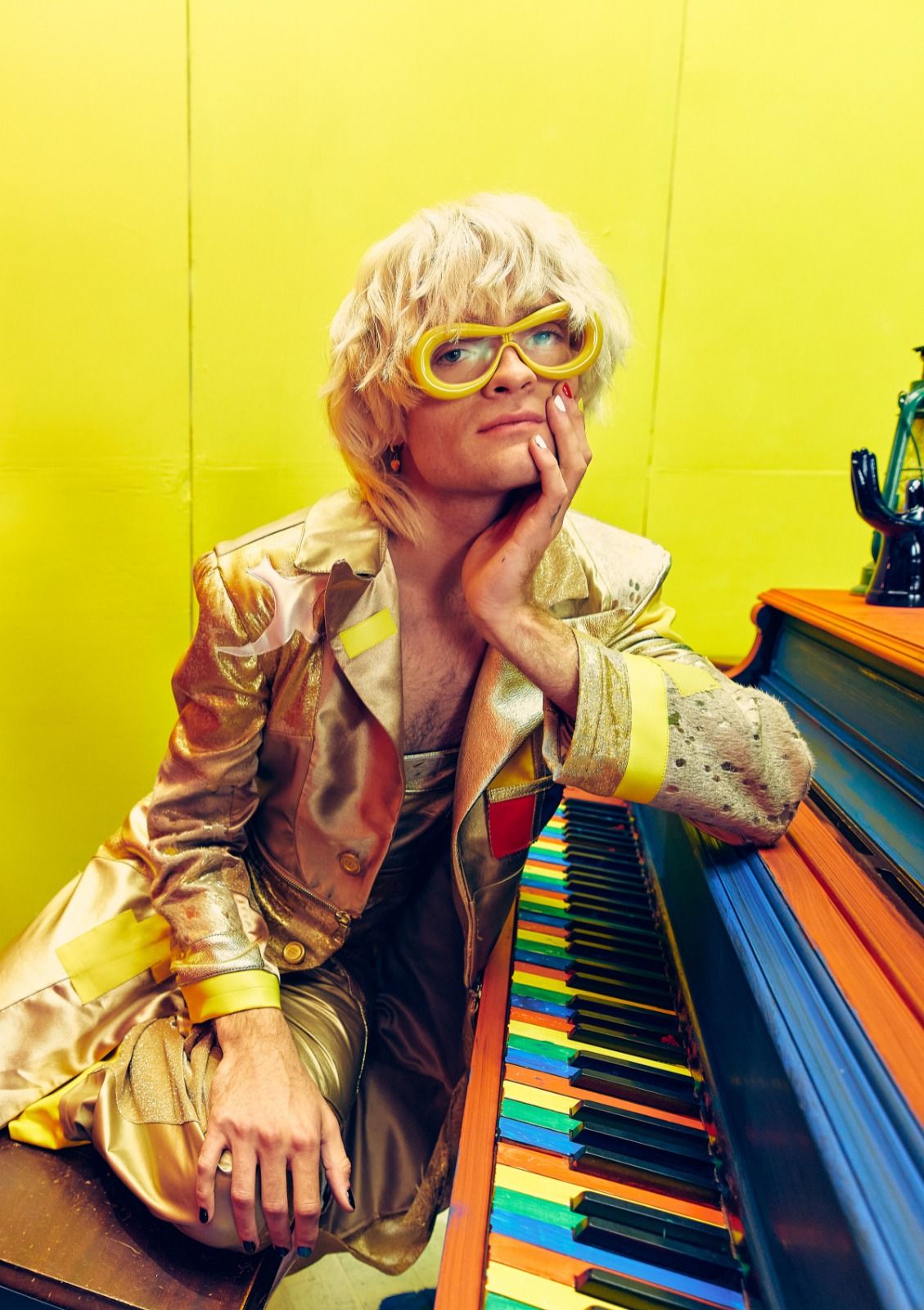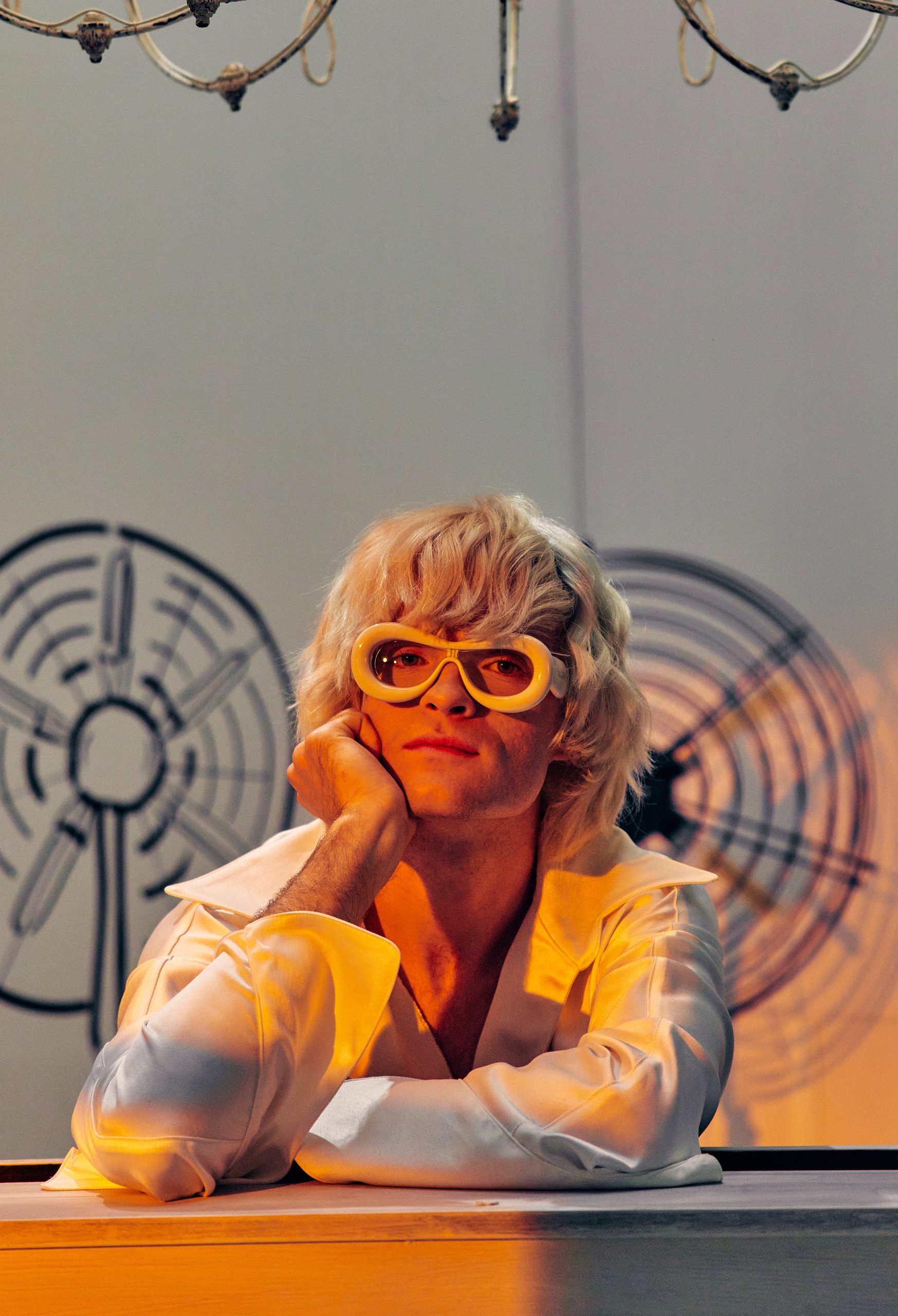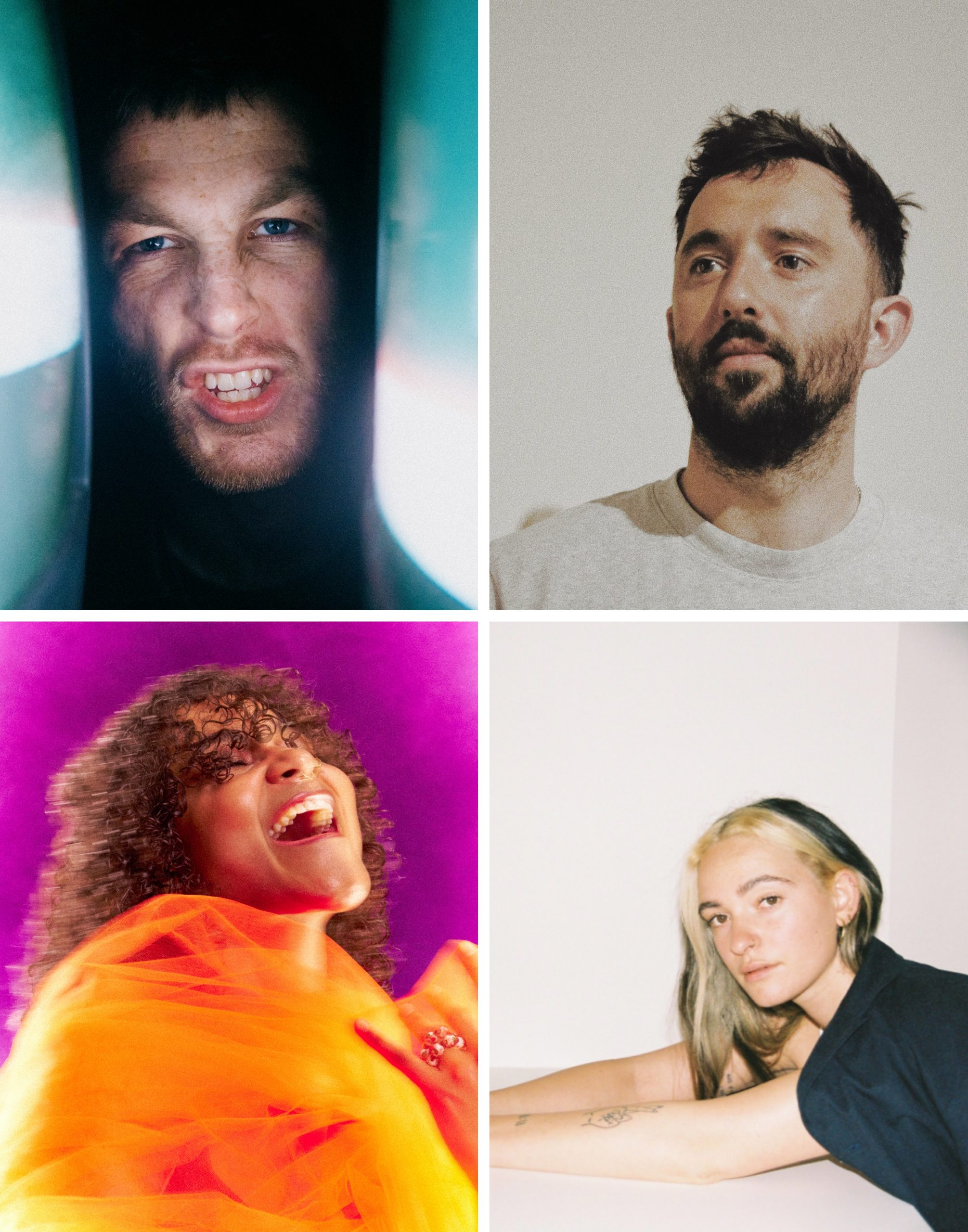
Jake Wesley Rogers
Since appearing on the seventh season of America’s Got Talent back in 2012, Jake Wesley Rogers has had a metamorphosis. More precisely, he fully and unabashedly came into himself — blooming from a shy, bespectacled fifteen-year-old from Missouri who wowed AGT judges with his soulful guitar ballads into a flamboyant, confident, still-bespectacled twenty-six-year-old who wows global audiences and encourages them to live their truths daily.
Rogers is a queer icon in the music world for whom the remaining months of 2023 are sure to be as wild as his wardrobe choices (all rhinestones and pops of colour and taffeta). After all, he recently jumped on Kesha’s The Gag Order Tour, as an opener in a new city every night; has just released his new single “Window”; and has no shortage of visions and plans for the near future.
Jake Wesley Rogers sits down with 1883 Magazine to chat about his trademark habit of sipping tea on stage, what religion means to him as someone who grew up in the Bible Belt, the significance of doves as a symbol in his artistry, what his favourite recent reads are, and everything in between.

I actually discovered your music this summer, at the Wolf Trap “Out and About” festival that I attended with my mom. You gave such a heartwarming performance and your words — both in the songs and in between the songs — made us both tear up. From that moment on, I was like, “I have to interview Jake for the magazine!” Not only to learn about your songwriting process but also to tap into the wisdom that you have in general. On that note, can you share more about the overall life philosophy that informs your work and your life?
Thank you for saying that! I’m so glad you were at that show! It was such a special show and a really special weekend. My life philosophy — that’s a big question. I think I’ve always just been looking for the truth, past the bullshit — in my own life and also in the world. I’ve always felt the need to go deeper and deeper and find out what’s really going on inside of me and bring that out. One of my favorite quotes is, “if you bring forth what’s inside you, what’s inside you will save you.” I also believe that the opposite is true. If you don’t bring forth what’s inside you, what’s inside you will kill you. I say that as a reminder to myself, because I feel like whatever one preaches is usually what they need to hear the most. It’s pretty much what I need to hear all the time.
I can totally see that shining through your work. Now, a big question that I’m sure a lot of fans are asking: how does it feel to be beginning a tour with Kesha? How is she in real life?
First of all, it’s just so fun. She’s obviously an icon, and we all have so many wonderful memories with her music and her energy and her fearlessness. She’s just a wonderful light and a really bright, shining superstar. It’s an honor to be on the road with her — it’s gonna be a beautiful, beautiful experience for us but also for everyone that comes.
A very hyper-specific question: how did you come up with your ritual of sipping tea on stage? I know you don’t always do it, but it seems to be an original habit you have as an artist.
I never drank coffee or anything, but five or six years ago, I went to Ireland and London for the first time. I was like, “this is cool. Tea’s really good!” I love the ritual of it. It kind of just became a part of my day, every day. And so it only made sense that [the habit] found its way back to the States.
Related to rituals that you have before or during a show, I’d love it if you talked a little more about your own headliner tour — Peace, Love, and Pluto. How did it feel to be hitting up all those cities? Was it everything you dreamed of and more? Did anything take you by surprise during the process?
The first headline tour was magical. And it was also, like, really scary going into it, because I’ve never done anything like it. You have so much fear going into as far as what it’s going to be like, if people are going to show up, all those things… But every single night proved to assuage my doubts and fears. It was really special to connect one-on-one with the people who wanted to hear the music and the message. I really feel like they gave me more than I gave them. Music is this really ancient exchange of energy that in only the last 100 years has become incredibly commodified and capitalized upon. I try to remember that the point of it is to connect with humans: that’s kind of how I treat each show. I think the tour taught me that, more than anything, it’s a service. But it’s not just me serving [audiences]. The audience gives me so much, too. So, so, so much.
Given your close bond with your fans and that you care so deeply about spreading messaging which encourages them and liberates them, do you have a particular fan interaction you’ll never forget — one that really impacted you as an artist?
There are so many special ones, but on the first day of the last tour, I was doing a meet-and-greet. This mom had a card from her daughter — I think her daughter was, like, five or six, and she wrote me this little card. I don’t remember exactly what it said, but it made me weep. This little kid literally wrote, “I’m afraid to be myself but seeing you be yourself helps me.” It broke my heart — why is a six-year-old afraid to be themselves? But that’s kind of how the world is, and we are all so afraid of being fully authentic all the time. I still have her card.
I’m curious about the writing process for your newest release — “Window.” The lyrics seem to be speaking to someone in particular, but it also could be dedicated to all your fans going through a hard time. Could you walk me through your intentions with this particular song?
This song is for people who feel very hopeless and very broken and need a sign or a little bit of hope. It’s not always safe to leave whatever situation you’re in, even if it’s bad, but a window allows you to see a bit past it. That’s why it kind of makes sense to start the album with [this song]. There’s something about it that’s so grounded and so rooted. I kind of wanted to build everything on top of it; I hope it feels like a friend.
Speaking of the intentions behind your songs in general, and symbolism in particular, I know that Pluto is a symbol in your work (as well as doves). I read somewhere that you call your fans little doves, and your album art has that imagery in it. I view doves as having religious resonance — being a symbol of revival, in a way. Why are doves significant to you? Why have you been returning to that symbol time and time again?
I feel like the doves kind of came to me — I started painting them a lot during COVID. I love what they represent: they’re the go-to sign of peace and love. I grew up in the Bible Belt around [religious] stories, and I’ve always loved Noah’s Ark — as a metaphor for, in a time of crisis, sending the stuff out and then returning with a sign of hope. Letting go of love and letting it come back when it’s time. I keep the symbol close because it’s very peaceful to me, and it’s very real. I just love birds, too. Doves seem like the most free to me. They’re also not the smartest bird — all heart, you know. I think that’s kind of where I like to be, even though most of the time I’m pretty cognitive, too. I like to lead with my heart, and they remind me to do that.
You touched upon growing up in the Bible Belt. Obviously, there’s quite a tension between traditional religious doctrine and sexuality/fluid personal expression. What role does religion play in your life currently? Has it morphed into something different at this time for you?
It’s very different from what I grew up learning and being taught, but it’s still a powerful force in my life to study and to approach in my own way. To see what truth there might be beyond the bullshit. There’s something so human about believing in something bigger than yourself; I feel like my life is just a quest to be as curious as possible. To learn and read and feel as many things as I can. Probably half my life is spent contemplating spirituality — the half that most people don’t see. It’s endlessly fascinating to me.
You say that you pursue curiosity, and you’re also a reader. In previous interviews, you particularly mentioned Walt Whitman as a literary influence, as well as Maya Angelou and even Patti Smith. What have you read recently that has impacted you and changed your perception in some way, if you can recall?
I read The Odyssey over the summer. There’s a really good new translation, by Emily Wilson. It’s remarkably easy to read. The Odyssey is a story that’s been told for thousands and thousands of years, so it sort of feels similar to me to reading the Bible. At the end of the day, it’s a story that we can derive meaning from, and so I had a good time reading it.
It’s definitely rich with metaphors and symbols — I’m sure that it fostered your creative process in some ways. My last question of this interview is: if you could speak to little, eleven- or twelve-year-old Jake, what would you say to him? What would you want him to know about the way you’re living life now — about the things you’ve achieved and the people you’ve met?
I would tell him that he’s the reason I’ve been able to do any of this. His bravery and pain and confusion and boldness is the reason I sing. I don’t feel like I have anything to tell him but “thank you” and “I’m sorry. I’m sorry you had to go through all that.”
Jake Wesley Rogers’ new single is out now.
Interview Stacia Datskovska





